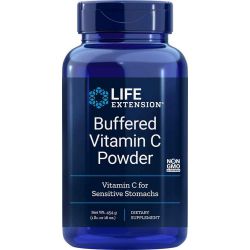
29,70 €
Science-based food supplements
Quantity:
Total:
Total products:
Total shipping: To be determined
Total:
Manufacturer: Kenay GmbH
Supports cardiovascular health
In stock
| Quantity | Price | You Save |
|---|---|---|
| 2 | 30,70 € | Up to 2,56 € |
| 4 | 30,06 € | Up to 7,67 € |
By buying this product you can collect up to 31 loyalty points. Your cart will total 31 points that can be converted during next order into a voucher of 1,55 €.

Pycnogenol® French maritime pine bark extract
30 capsules
Item Catalog Number: K1670EN
Original product name: Pycnogenol® French maritime pine bark extract
Every day, we are exposed to free radicals and oxidative stress. Many clinical studies have shown that natural antioxidants may offer strong protection against oxidative damage.
Among other antioxidants, Pycnogenol® stands out for its exceptional effectiveness in neutralizing reactive oxygen and nitrogen species.
The unique combination of procyanidins, bioflavonoids and organic acids naturally contained in the maritime pine bark extract Pycnogenol® shows four basic properties: it's a powerful antioxidant, shows strong anti-inflammatory effects, supports collagen and hyaluronic acid production and supports endothelial nitric oxide production, which helps to dilate blood vessels.[1,2]
Benefits at a Glance:
Inflammation and oxidative stress are crucial in the pathophysiology of several chronic diseases: type II diabetes, cardiovascular disease, and liver disease. Therefore, reducing inflammation and reducing oxidative stress may prove to be very important in the prevention and treatment of various chronic diseases.[4]
The anti-inflammatory effect of Pycnogenol® is based on inhibiting the release of pro-inflammatory mediators caused by oxidative stress. By stimulating antioxidant pathways, Pycnogenol® reduces the number of pro-inflammatory cytokines and oxidative stress markers, which, among other things, prevents lipid peroxidation. [5,6]
Pycnogenol® and its metabolites alsso inhibit the release of tissue-destroying enzymes and inhibit the enzymatic activity of cyclooxygenase, which is responsible for the development of inflammation and associated pain. [7,8]
Pycnogenol® may reduce the risk of cardiovascular disease in people with type 2 diabetes. [9,10,11]
Twenty-three people with coronary artery disease participated in an 8-week, randomized, double-blind, placebo-controlled crossover study. The aim of the study was to determine the efficacy of Pycnogenol® supplementation as an adjunct to standard therapy for coronary artery disease. Study participants received Pycnogenol® 200 mg/day followed by placebo or vice versa.[9-13]
The study showed that Pycnogenol® improves endothelial function in patients with coronary artery disease by reducing oxidative stress.[9-13]
A 12-week study examining the effects of Pycnogenol® on cognitive function, mental performance and attention involved 30 healthy professionals exposed to increased oxidative stress related to their work. The study participants consumed 150 mg/day of Pycnogenol®. After 12 weeks of the study, the participants receiving Pycnogenol® showed significant improvement over the control group. There was a greater than 30% reduction in oxidative stress. The study participants who consumed Pycnogenol® also showed improved alertness, reduced anxiety, and increased happiness.[14]
The study showed that supplementation with Pycnogenol® for 12 weeks may improve cognitive function and alleviate oxidative stress in healthy individuals aged 35-55.[14]
Further research is being conducted on new applications of the unique extract Pycnogenol®. Comprehensive research and development programs are being carried out in cooperation with scientists and specialist companies around the world, and new applications of Pycnogenol® are being studied every year.[15]
Pycnogenol supports blood glucose control, which is crucial for diabetes. Liu et al.'s (2004) study showed that after 8 weeks of supplementation, fasting glucose levels in patients with type 2 diabetes dropped by an average of 23%, and insulin sensitivity increased by 52% [17]. These results suggest that Pycnogenol may support diabetes management and reduce the risk of complications related to blood vessel damage.
In laboratory studies, Pycnogenol® has been shown to directly and indirectly turn off at least five key mechanisms of aging: oxidative stress, cell membrane damage, DNA damage, inflammation, glycation.[18]
In addition to reducing skin aging, Pycnogenol® prevents wrinkling and even reduces skin symptoms of cardiovascular disease. In addition, Pycnogenol® reduces the risk of other age-related diseases: heart disease, diabetes, cognitive decline, and arthritis. Pycnogenol® strengthens the body's natural defenses against premature aging.[18]
The 12-week study involved 20 postmenopausal women. The study assessed the effect of Pycnogenol® supplementation on skin condition. Skin condition was assessed before, during and throughout the study. Pycnogenol® supplementation was well tolerated by all study participants.[3]
Pycnogenol® supplementation significantly improved skin hydration and elasticity, especially in participants who had dry skin before the study began.[3]
Pycnogenol® supplementation increased both skin hydration and elasticity, which is most likely due to increased synthesis of hyaluronic acid and collagen. Pycnogenol® supplementation may therefore be useful in counteracting clinical signs of skin aging.[3]
Serving Size: 1 capsule
| Amount per day (1 capsule) | |
|---|---|
|
Maritime Pine Bark Extract (Pinus pinaster) [Pycnogenol®], |
100 mg |
| including: oligomeric proanthocyanidins (OPC) 65% | 65 mg |
|
Ingredients: maritime pine bark extract (Pinus pinaster) standardized to 65% oligomeric proanthocyanidins (OPC); capsule: hydroxylpropylmethylcellulose. |
|
Product suitable for vegetarians
Clean label - capsules contain only active ingredients, without binders, fillers, glidants or other additives
Pycnogenol® is a registered trademark of Horphag Research Ltd. This product may be covered by one or more US or foreign patents.
Vcaps® is a trademark of Lonza or its affiliates.
Dosage and Use
Unless your doctor recommends otherwise, take 1 capsule daily.
Storage method: store in a closed container at room temperature, out of reach of small children.
Warnings:
Before you start using any dietary supplement, consult your doctor.
Dietary supplements are not medicines.
Do not exceed the recommended daily dose.
Dietary supplements cannot be used as a substitute for a varied diet.
Do not use in case of hypersensitivity to any ingredient of the preparation.
The product should not be used by pregnant or breastfeeding women and children and adolescents under 18 years of age.